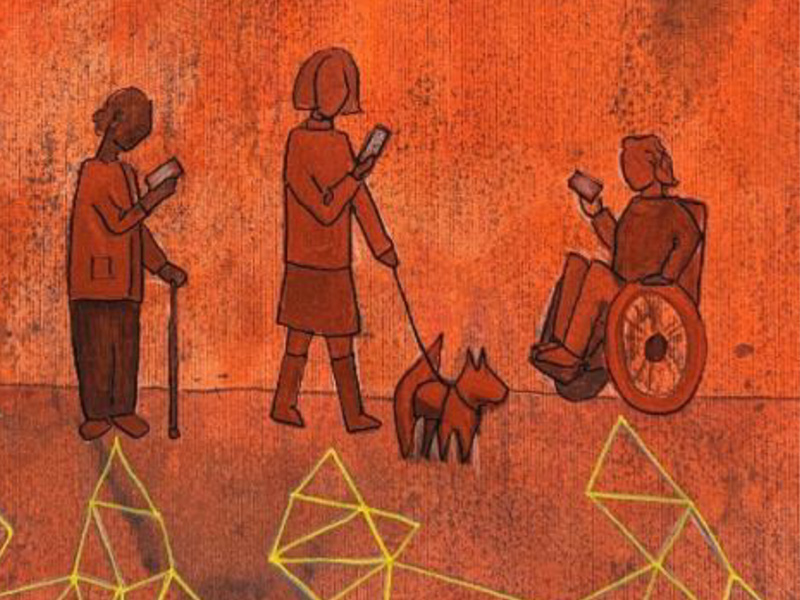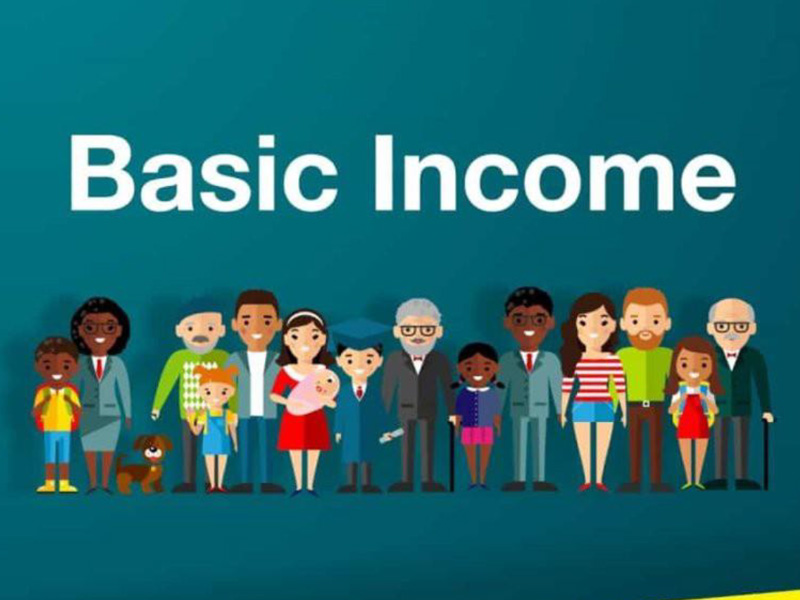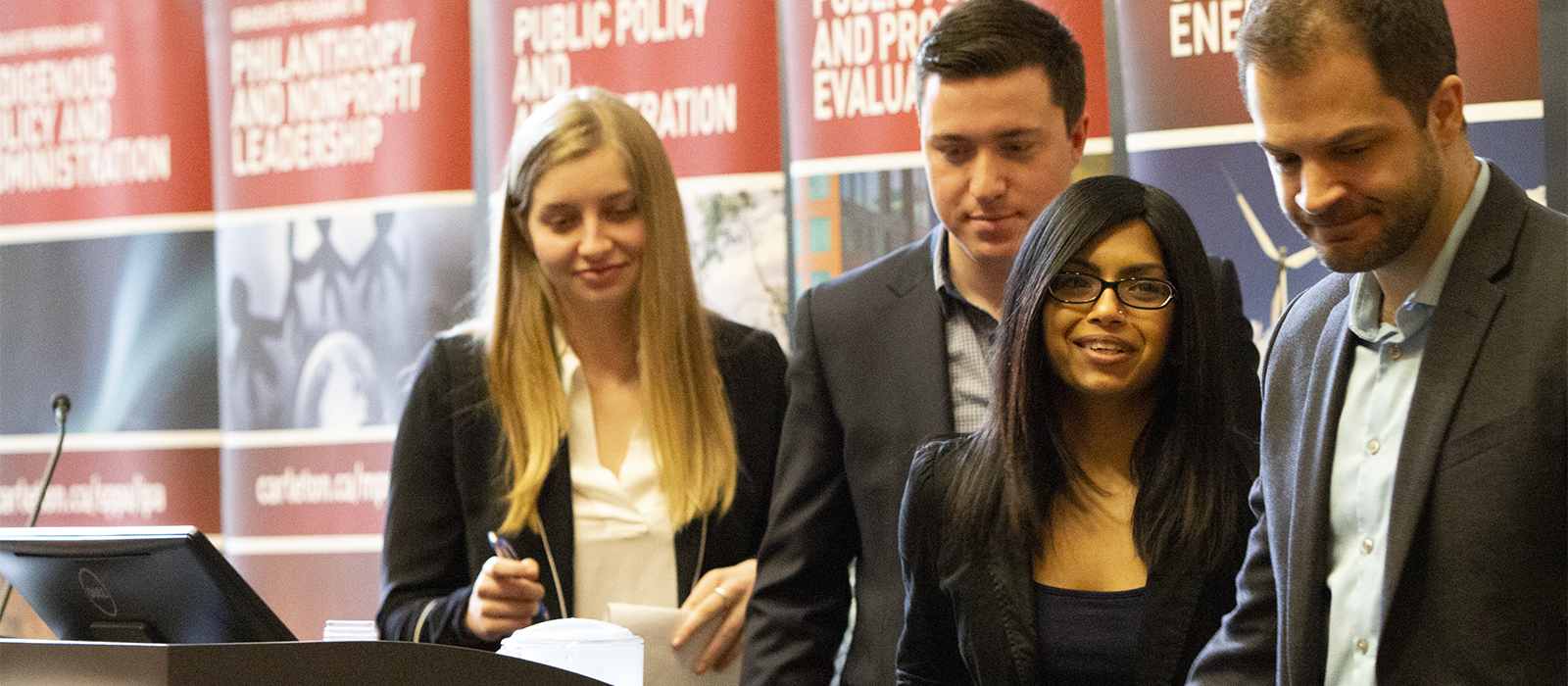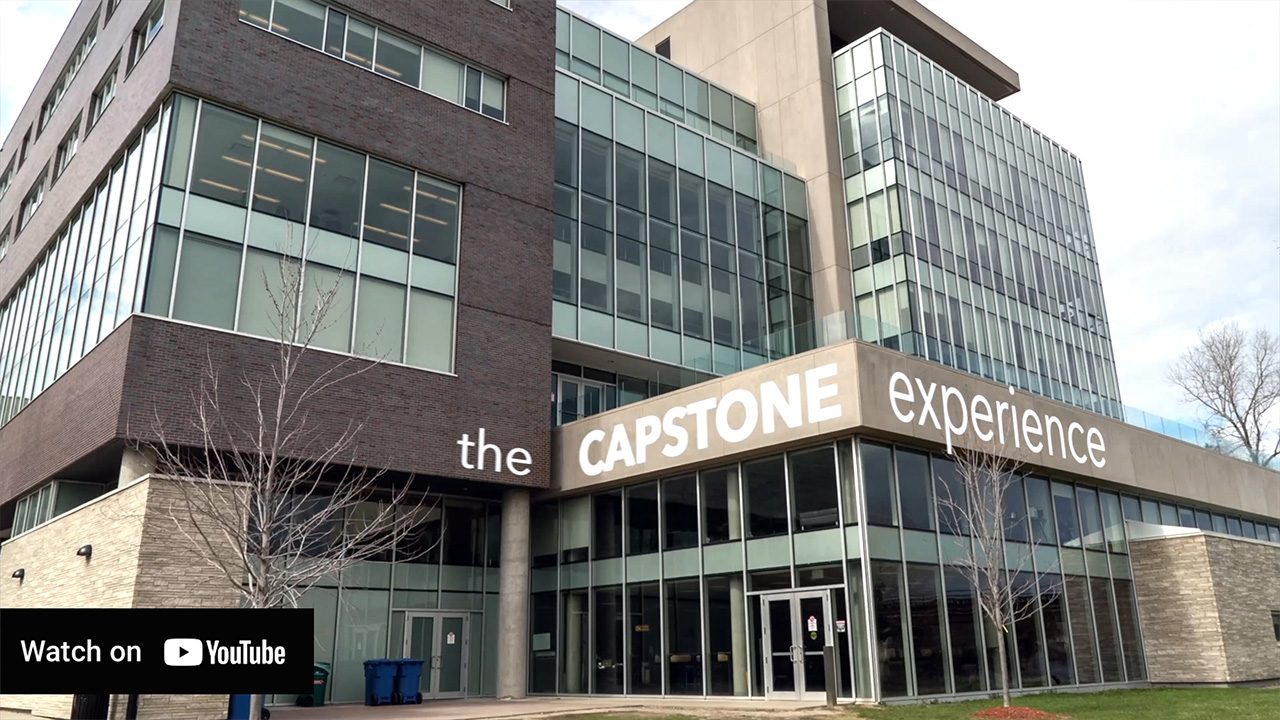The MPPA capstone project course is the high point of the program. As a full cohort, students get the chance to solidify their ties to other students and reinforce the skills and competencies gained from their core and elective courses. Instruction in specific professional skills (negotiations, leadership), is followed by a four-day, intensive where students learn about a national policy issue from experts in the field.
In teams of policy stakeholders, students then present policy briefs to an expert panel with decades of experiences in politics and public administration. Students are evaluated on their ability to develop oral, visual and written materials that effectively communicate policy analysis advice. Previous cases have covered the opioid crisis, smart cities and digital governance, rare diseases and basic income.
2024 CAPSTONE PROJECT
Governing the use of Generative AI in Canada
PADM 5129: Capstone Seminar
Faculty Instructors:
Adegboyega Ojo & Anil Varughese
April 2024


2024 Capstone Class along with Assessor Panel the Honourable Shelia Copps, and former Clerk of Privy Council Micheal Wernick (back left) and SPPA Faculty (back right) Adegoyega Ojo and Anil Varughese (front right). Photo by Eddie Benhin.
Past Capstone Projects

2023
Misinformation and Disinformation
Nathan Grasse
Phillip Ryan

2022
Spreading the Wealth: Rethinking Charity Regulation in a Time
of Need
Graeme Auld
Nathan Grasse

2021
Developing a National Strategy for a Guaranteed Basic Income
Marc-Andre Gagnon
Anil Varughese
![]()

2018
The Opioid Crisis in Canada: Developing a National Plan
Marc-André Gagnon,
Susan Phillips

2019
Smart Cities and
Data Governance
Amanda Clarke
Marc-André Gagnon

2020
Developing a National Strategy for Rare Diseases in Canada
Anil Varughese
Marc-André Gagnon
![]()

